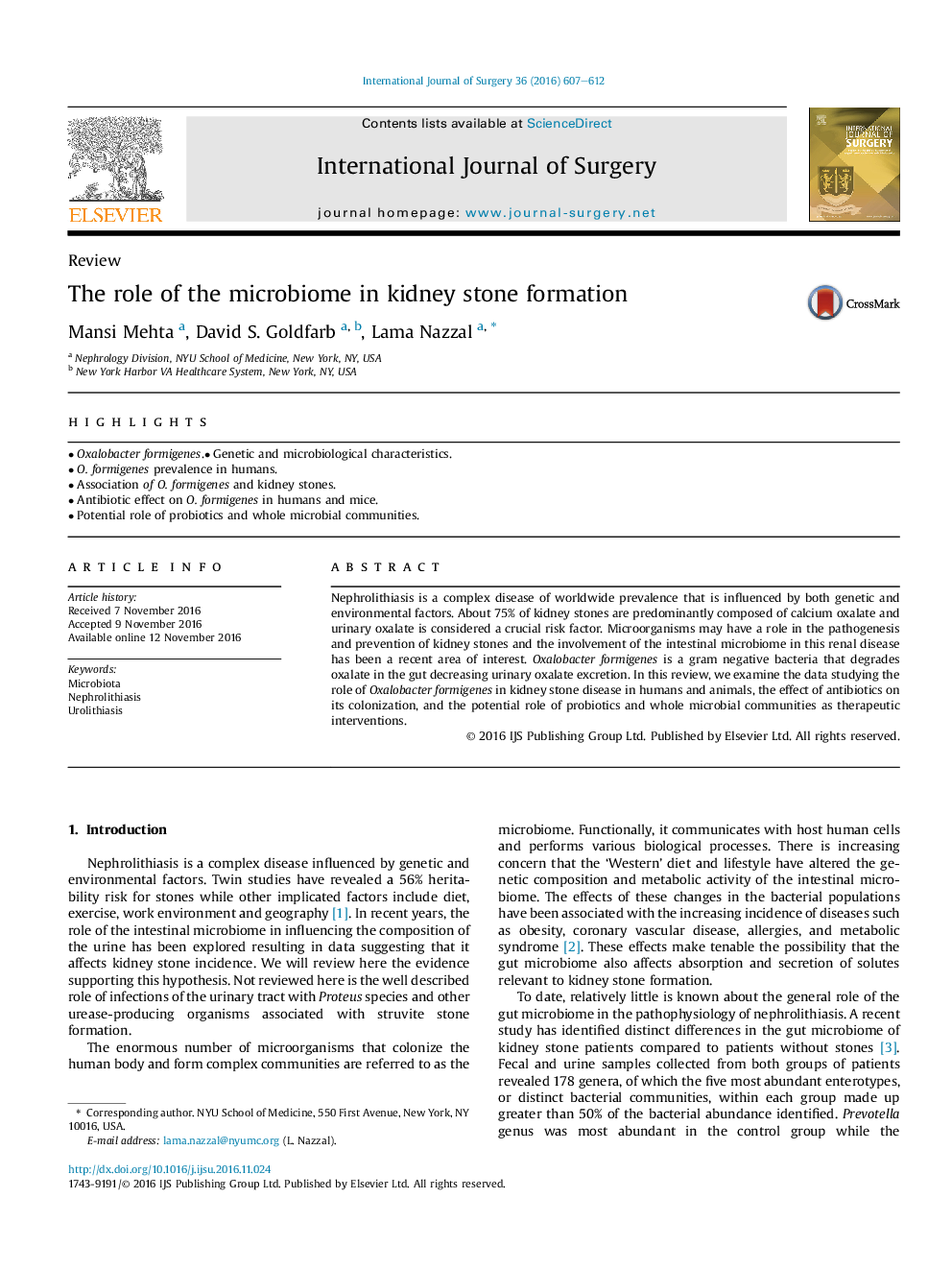| Article ID | Journal | Published Year | Pages | File Type |
|---|---|---|---|---|
| 5732424 | International Journal of Surgery | 2016 | 6 Pages |
â¢Oxalobacter formigenes.â¢Genetic and microbiological characteristics.â¢O. formigenes prevalence in humans.â¢Association of O. formigenes and kidney stones.â¢Antibiotic effect on O. formigenes in humans and mice.â¢Potential role of probiotics and whole microbial communities.
Nephrolithiasis is a complex disease of worldwide prevalence that is influenced by both genetic and environmental factors. About 75% of kidney stones are predominantly composed of calcium oxalate and urinary oxalate is considered a crucial risk factor. Microorganisms may have a role in the pathogenesis and prevention of kidney stones and the involvement of the intestinal microbiome in this renal disease has been a recent area of interest. Oxalobacter formigenes is a gram negative bacteria that degrades oxalate in the gut decreasing urinary oxalate excretion. In this review, we examine the data studying the role of Oxalobacter formigenes in kidney stone disease in humans and animals, the effect of antibiotics on its colonization, and the potential role of probiotics and whole microbial communities as therapeutic interventions.
